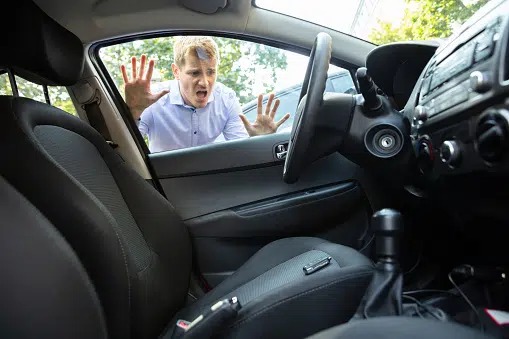Losing your car keys can be stressful, frustrating, and even dangerous if it happens in the wrong place or at the wrong time. Whether you’re stranded at home, stuck in a shopping centre, or on the side of the road, knowing the right steps to take can save you time, money, and unnecessary stress.
This guide explains exactly what to do immediately when you lose your car keys and how to prevent it from happening in the future.
Why Losing Your Car Keys Can Be a Serious Problem?
Car keys aren’t just about getting access—they’re about security. Losing them can:
-
Leave your car vulnerable to theft
-
Cost you hundreds of dollars for replacement, especially for smart or electronic keys
-
Disrupt your daily routine, making you late for work or appointments
Understanding the risks helps you act quickly and safely.
Step 1: Stay Calm and Retrace Your Steps
The first and most important step is to stay calm. Panicking only makes it harder to think clearly.
Here’s what to do:
-
Think about the last place you used your keys.
-
Check common spots: pockets, bags, desks, car interiors, or around your home.
-
Ask family, friends, or colleagues if they’ve seen your keys.
Pro Tip: Take a few deep breaths and systematically check areas rather than rushing—it increases your chances of finding your keys quickly.
Step 2: Look for Spare Keys
Spare keys exist for a reason—they’re your safety net.
-
Retrieve your spare key from home or a trusted friend/family member.
-
Keep a spare key in a secure location for future emergencies.
A spare key can save you the cost and hassle of immediate replacement.
Step 3: Call a Professional Locksmith
If your keys are truly lost, it’s time to contact a professional. A locksmith like Lost My Key can help by:
-
Creating a replacement key, including smart keys and electronic key fobs
-
Reprogramming key fobs or transponders
-
Ensuring your car remains secure if there’s a risk that lost keys could be misused
Tip: Keep a locksmith’s number saved in your phone for emergencies—it’s much faster than searching online when stressed.
Step 4: Consider Replacing or Reprogramming Your Keys
For modern cars, lost keys aren’t just an inconvenience—they’re a security risk.
-
Reprogramming your car’s electronic system ensures nobody can use lost keys to start your vehicle.
-
A professional locksmith can advise whether a simple replacement, reprogramming, or full key replacement is the best approach.
Step 5: Prevent Future Key Loss
Once you’ve recovered or replaced your keys, it’s essential to prevent future lockouts.
-
Keep a spare key in a secure, accessible location
-
Consider using key trackers like Tile or Apple AirTag
-
Establish a consistent “home base” for your keys
-
Label keys with discreet contact info in case they are lost
Bonus Tip: Consider upgrading to a keyless entry or smart lock system. These reduce the risk of lost keys and make access easier.
Step 6: Safety Tips During a Lockout
While waiting for a locksmith:
-
Stay in a safe, well-lit area
-
Avoid forcing doors or attempting DIY lock-picking
-
Keep children and pets away from unsafe areas
Following these steps ensures your safety until a professional arrives.
Step 7: Common Questions About Lost Car Keys
Q: Can I get back in without a locksmith?
A: Only in rare cases, such as when a spare key is accessible. Attempting to force the lock can cause damage.
Q: How long does a locksmith take to arrive?
A: In New Zealand, most emergency locksmiths reach you within 30–60 minutes, depending on location.
Q: Are smart keys safer than traditional keys?
A: Yes. Smart keys reduce the risk of losing keys and allow remote access for trusted individuals.
Final Thoughts
Losing your car keys doesn’t have to ruin your day. By staying calm, checking for spares, and contacting a professional locksmith like Lost My Key’s car lockout service, you can quickly regain access to your vehicle and peace of mind.
Remember: preparation is key—literally! Keeping a spare or backup plan in place can save you from future stress, unexpected costs, and emergencies.

